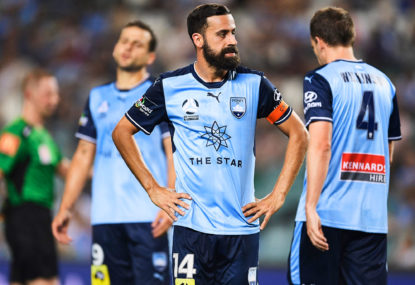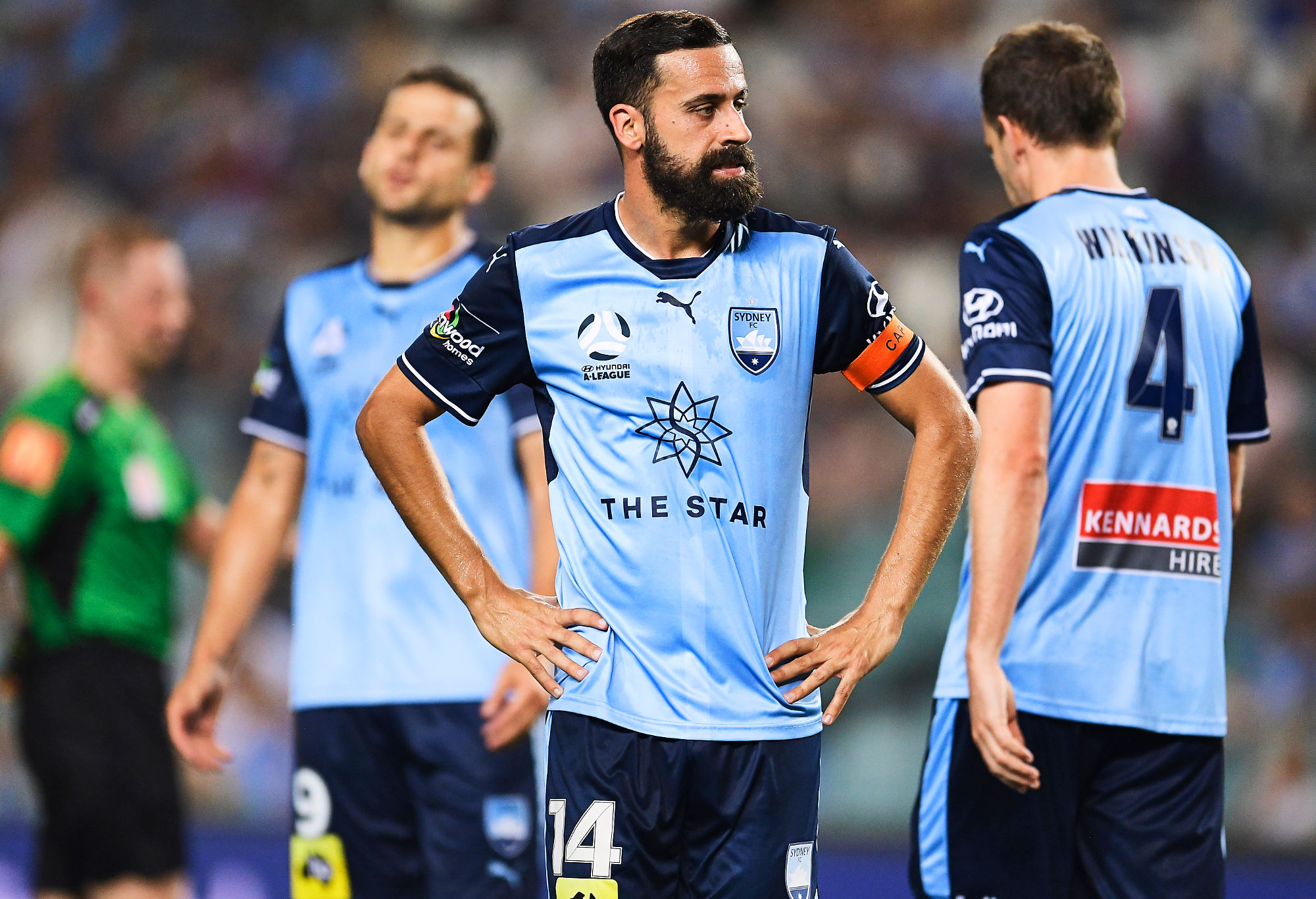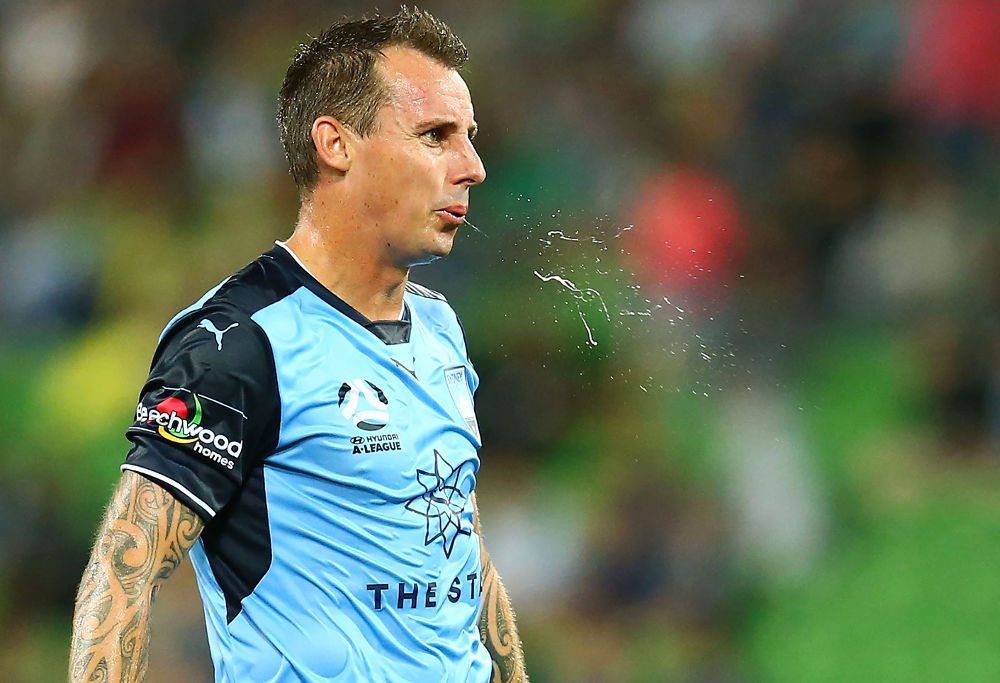JM Silvestro
new author
Roar Rookie

I sit as I wait anxiously for the game to start. I put myself in a world in which no-one can enter, pure concentration and focus on the 45 minutes ahead. The whistle blows and I run onto the pitch, blood pumping, fixated on achieving something very few teams can do.
The game was a real struggle. Half-time 0-0, full-time 0-0, extra-time 0-0. It was down to penalties and the final kick fell to me.
I will never forget the referee’s words – “If you score this, you win” – casually adding five times more pressure than I had already felt. I closed my eyes, took a breath and shot.
Goal! I had done it! We were intp the finals. I ran straight back to my team, took off my shirt, got a yellow card and celebrated like never before. We ended up winning the finals that year and I won best player.
My story, however, does not begin here.
It begins in a small backyard with six perfectly placed cones in front of each other. Ever since I was about 11 years old my daily routine was to wake up at 6am three to four days a week, train, go to school, wait impatiently for lunchtime, run to the oval, play the daily 30 minutes of football with my mates, come home, go to club training and play on a Sunday. It was football or nothing for myself and countless others.

(Brett Hemmings/Getty Images)
There are many opportunities that Football NSW has provided me, yet the older I get, the more and more I realise how much it lacks in providing the fundamental development for its youth.
Football NSW (FNSW) provides many opportunities for kids to pursue their footballing career. It presents two pathways: park football, which is for your casual everyday players looking to have fun; and premier league football, which is more serious.
The premier league for younger youth aged nine to 12 is regarded as a skills acquisition program. This is a great program set up for aspiring kids looking to further their talents in football. The program has really developed since I was part of it as coaches are more experienced and receive better training provided by FNSW.
There is a great grassroots interest in the sport and a good standard of boys and girls playing. FNSW also provides quality fields, as most premier league grounds are synthetic and the grass fields are well maintained.
The problem with Football NSW is that they have become greedy. They are more focused on money and politics than the development of its older youth aged 13 to 16. The development process is also lacking as these days coaches look for the tallest and fastest players and make them run until they give out.
The coaching philosophy is, “If I’m winning games, I must be doing a good job”, which is a terrible attitude, as evident in the players who are stronger and taller getting nowhere after grassroots football.

(Jack Thomas/Getty Images)
I feel that clubs have the means to implement better coaching, but I can tell you they won’t due to the cost attached to it.
Ned Zelic, a former Australian football player who scored the goal against Holland to qualify for the 1992 Olympics, has voiced his concerns on the pre-existing debate on youth development. He shares how NSW and all of Australia have started to accept failure as normal.
“I think a big difference – and I can only talk about my generation and our environment – it was a better balance between technical ability and parallel mental strength because you were in a tough environment, one where winning is a lot more important,” he said. You had different pressures to deal with. That’s what I feel the big difference is today.”
He’s right in saying this, as these days there is a massive emphasis on having fun and a low sense of actually winning by all means, I am not saying that this is terrible, but in Europe and South America winning is everything and competition is everywhere as you are constantly fighting for a spot in the team.
Zelic describes his time in Germany as “an absolutely brutal business” of “hour and a half sessions, full on war, massive competition for places”.
“I was pretty much thrown into it immediately and adapted to it. I quickly learnt the German winning mentality.”
One of the reasons so few of our homegrown NSW players aren’t in the top leagues is due to not having adapted the winning mentality at a young age.
[latest_videos_strip category=”football” name=”Football”]
So how can Football NSW fix the gaps in its youth development?
The only way to further youth development in NSW is for a better coaching scheme to be implemented. Clubs must aim to develop boys all the way up with the main goal of seeing them play in the first-grade team.
Coaches must stop focusing so much on height and speed but rather technique, because in senior football, which is the ultimate goal of youth development, everyone is the same size and can deal with speed, so technique and smartness is the difference between good and great players.
Football NSW has proved it can develop top quality players with the likes of Tim Cahill, Mark Milligan and current Australian captain Mile Jedinak. In order to keep producing players like these, Football NSW must begin to look at the countries that are producing the best players in the world, such as Germany, Brazil, Italy, Spain and France. These countries have academies linked to major clubs and most of the time have ex-professionals coaching.
Football NSW must also implement and emphasise the winning mentality, as explained by Ned Zelic, as it is crucial in allowing our players to be able to compete with the best.
I strongly believe that with an injection of money from the government or through other sources Football NSW can implement the ideas put forward and further the development of its youth. In doing this I am certain that other states would follow, and hopefully one day Australia can be put on the list above of countries producing the best players in the world.